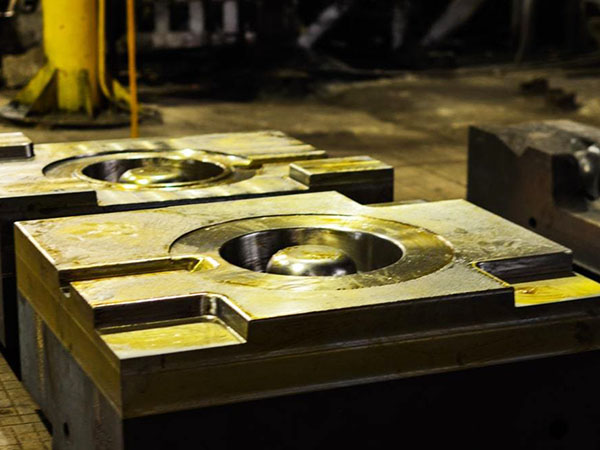Business Background
The client is a machinery and equipment manufacturing company located in Suzhou, which needs to export a batch of metal die-casting molds to Manila, Philippines. After learning about our company's comprehensive services for Southeast Asia special line logistics business through Internet search, we established communication with our company. After our business personnel explained in detail the transportation process and policies and regulations about the export of machinery and equipment to the Philippines, the customer entrusted our company to transport these metal die-casting molds to Manila, Philippines.
Business Process
Metal die-casting molds are overweight goods. The volume of a set of molds is less than one cubic meter, but the weight may reach one ton. If air freight is arranged, the logistics fee is quite expensive, so our company chooses the way of LCL sea freight for the customer to ship the goods to the Philippines
First of all, before the operation, the customer needs to prepare the following information:
(1) Customs specification declaration elements for metal die-casting molds: 1. Product name; 2. Brand type; 3. Export preferences; 4. Purpose; 5. Applicable materials; 6. Brand (Chinese and foreign name); 7. Model; 8. Mold material; 9. Principle; 10. GTIN; 11. CAS; 12. Others (optional elements, please fill in according to the actual situation);
(2) Basic documents for export declaration: packing list, invoice, trade contract, power of attorney for customs declaration, enterprise business license, customs registration record number, etc.
Next, start the sea freight booking and export customs clearance procedures:
(1) Space booking link: The volume of bulk cargo is usually not large, and the consignor needs to fill in a booking form (BOOKING), which must be filled in: consignee and consignor information, port of departure and destination, cargo The Chinese and English name of the product, the number of pieces, the net weight, the gross weight, the volume, the booking price and the shipping date and other information, after the confirmation is correct, you will get a warehousing receipt after the booking is successful, which will indicate the warehousing route and related attention matter;
(2) Customs declaration link: After the completion of the booking, it is necessary to prepare for the customs declaration, and prepare the customs declaration materials for bulk sea cargo in time. Because the customs declaration of bulk cargo does not start until the goods enter the bulk cargo warehouse, and the customs declaration procedures must be completed before loading, that is, the goods must be delivered to the warehouse at least two days in advance;
(3) Warehouse verification: After the goods enter the warehouse, the warehouse will provide a warehouse verification form to the customer to confirm the weight, number of pieces and volume of the goods. If the consignor has any objection to the data given by the warehouse, the warehouse will re-measure And give the measured data until the customer confirms that it is correct;
(4) Replenishment of the bill of lading: after confirming the customs declaration and release of the goods, the refilling of the bill of lading can be arranged. After the completion, our customer service will make a COPY draft of the bill of lading through the bill of lading supplementary materials provided by the customer and give it to the customer for verification. Then we will ask the customer whether to issue the original bill of lading or the telexed bill of lading, and we will issue the corresponding bill of lading according to the customer's requirements.
(5) Pick-up tracking: After the goods arrive at the Philippine port, our company will follow up the customs clearance and delivery of the local cooperative company, so that we can deal with it in time to avoid emergencies.

Experience Summary
1. The customs declaration is based on the net weight of the bulk cargo, so the net weight of the goods must be accurate. In order to cooperate with the delivery at the destination port, the customer must also provide the accurate gross weight of the goods.
2. Although metal die-casting molds are general goods, it is recommended to confirm whether the destination port can be cleared and whether other documents are required for customs clearance before delivery, such as: certificate of origin.
3. For heavy cargo of die-casting molds, the consignor must be advised to pack wooden pallets, because it is difficult to unload the molds without packaging when loading and unpacking the cabinets.
4. For bulk cargo shipping, the weight of the customs declaration and bill of lading is subject to the customer's provision, so the customer must provide an accurate weight declaration (the weight is related to the customs declaration fee) and make a bill of lading to avoid additional costs.

